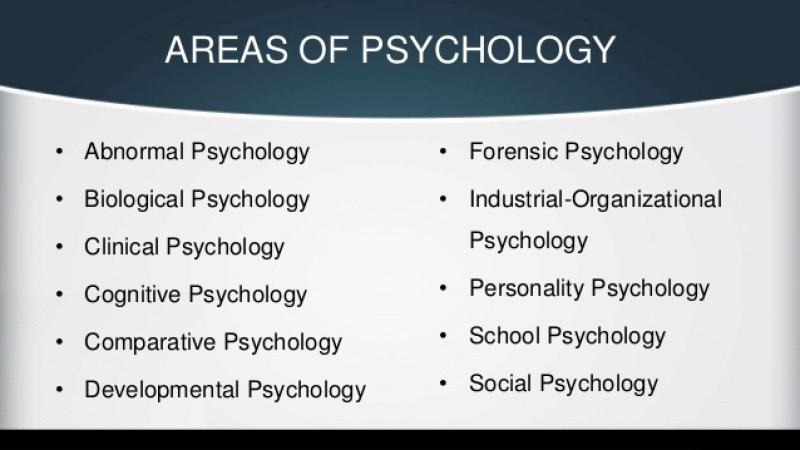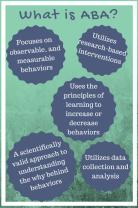What are the most popular areas in psychology?
Psychology is a diverse field with various specialized areas of study and practice. Some of the most popular and well-established areas in psychology include:
Clinical Psychology:
- Clinical psychologists assess, diagnose, and treat mental health disorders. They often work in therapy settings, hospitals, or private practices.
Counseling Psychology:
- Similar to clinical psychology, counseling psychologists focus on helping individuals deal with emotional and interpersonal issues. They work in settings such as schools, colleges, and private practices.
Educational Psychology:
- Educational psychologists study how people learn and develop in educational settings. They may work in schools, colleges, or educational research institutions.
Developmental Psychology:
- Developmental psychologists study human growth and development across the lifespan, examining physical, cognitive, and socio-emotional changes.
Social Psychology:
- Social psychologists explore how individuals are influenced by social interactions, groups, and cultural factors. Topics include attitudes, conformity, prejudice, and interpersonal relationships.
Industrial-Organizational (I/O) Psychology:
- I/O psychologists apply psychological principles to the workplace. They focus on issues like employee motivation, job satisfaction, and organizational behavior.
Health Psychology:
- Health psychologists study the psychological factors that influence physical health and well-being. They may work on issues like stress management, health behavior change, and coping with illness.
Forensic Psychology:
- Forensic psychologists apply psychological principles to legal issues. They may work in criminal profiling, victim advocacy, or assessing individuals' competency to stand trial.
Neuropsychology:
- Neuropsychologists study the relationship between the brain and behavior. They often work with individuals who have neurological disorders or injuries.
Sports Psychology:
- Sports psychologists focus on the psychological aspects of sports and athletic performance. They work with athletes to enhance mental skills, motivation, and overall well-being.
Experimental Psychology:
- Experimental psychologists conduct research to better understand fundamental psychological processes. They may specialize in areas such as cognitive psychology, perception, or learning.
Cognitive Psychology:
- Cognitive psychologists study mental processes such as perception, memory, problem-solving, and decision-making. They aim to understand how people acquire, process, and use information.
Positive Psychology:
- Positive psychologists explore factors that contribute to human well-being, happiness, and optimal functioning. This field focuses on strengths, positive emotions, and factors that promote a fulfilling life.
Environmental Psychology:
- Environmental psychologists study the interactions between individuals and their physical environments, exploring topics like the impact of design on behavior and the psychological effects of environmental issues.
These areas represent just a fraction of the diverse specialties within psychology. Many psychologists may integrate principles from multiple areas into their work, and interdisciplinary approaches are increasingly common in the field. The popularity of specific areas may vary based on societal needs, research trends, and evolving priorities within psychology.
What are the most popular fields or specializations within psychology?
Psychology encompasses a broad range of disciplines, each with its own focus and area of expertise. Here are some of the most popular fields or specializations within psychology:
Clinical Psychology: Clinical psychologists assess, diagnose, and treat mental, emotional, and behavioral disorders. They work with individuals, families, and groups to help them improve their mental health and overall well-being.
Counseling Psychology: Counseling psychologists provide guidance, support, and counseling services to individuals facing personal, social, or emotional challenges. They help clients develop coping mechanisms, improve mental health, and achieve personal growth.
Experimental Psychology: Experimental psychologists conduct research to investigate the basic principles of human behavior and mental processes. They use a variety of methods, including laboratory experiments, surveys, and observational studies, to gain insights into human cognition, perception, learning, memory, and other mental phenomena.
Social Psychology: Social psychologists study how individuals think, feel, and behave in social settings. They explore topics such as social influence, group dynamics, attitudes, prejudice, and interpersonal relationships.
Developmental Psychology: Developmental psychologists study the physical, cognitive, and social-emotional development of humans across the lifespan. They investigate how individuals grow and change from infancy to adulthood.
Which areas of psychology attract the most research and interest?
The areas of psychology that attract the most research and interest tend to be those with direct relevance to human behavior, mental health, and social issues. Here are some examples:
Cognitive Neuroscience: Cognitive neuroscience explores the relationship between the brain and mental processes. It uses techniques such as neuroimaging and brain stimulation to understand how the brain underlies cognitive functions like memory, attention, and language.
Positive Psychology: Positive psychology focuses on the study of human strengths, happiness, and well-being. It explores factors that contribute to a fulfilling and meaningful life, such as positive emotions, resilience, and optimism.
Neuropsychology: Neuropsychologists study the effects of brain injuries and neurological disorders on behavior and mental functioning. They assess, diagnose, and rehabilitate individuals with cognitive impairments caused by neurological conditions.
Forensic Psychology: Forensic psychologists apply psychological principles to legal and criminal justice settings. They conduct evaluations, provide expert testimony, and assist in investigations involving crime, violence, and mental health issues.
Industrial-Organizational Psychology: Industrial-organizational psychologists study human behavior in the workplace. They focus on improving productivity, job satisfaction, and organizational effectiveness.
What factors contribute to the popularity of certain branches of psychology?
Several factors contribute to the popularity of certain branches of psychology:
Relevance to Human Issues: Psychology disciplines that address significant human problems, such as mental health issues, social challenges, and personal growth, tend to attract more attention and research funding.
Potential for Practical Applications: Branches of psychology with direct applications in areas like healthcare, education, law, and business are often seen as more relevant and appealing to students and prospective professionals.
Advances in Technology and Methodology: New research methods and technological advancements can open up new avenues of inquiry and expand the scope of certain psychological fields, leading to increased interest and growth.
Societal Trends and Changing Needs: As societal needs and challenges evolve, new areas of psychology may emerge or gain prominence to address emerging issues.
Public Awareness and Media Portrayals: Positive media portrayals of psychologists and their work can pique public interest and encourage more individuals to pursue careers in psychology.













